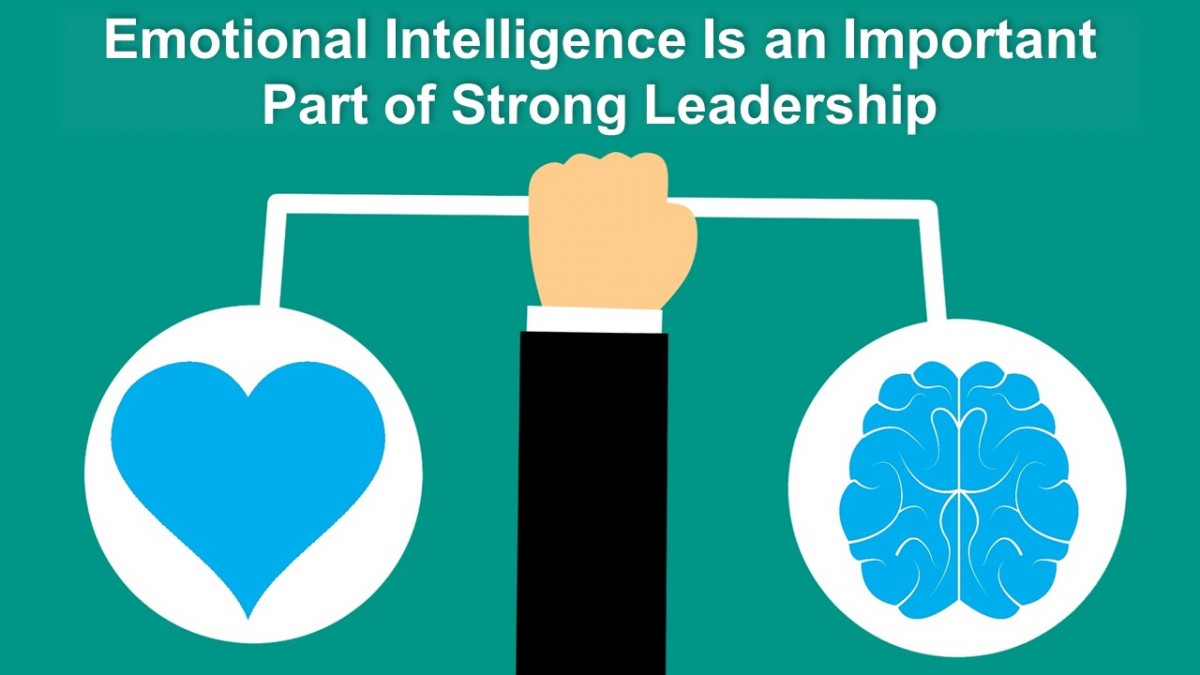Share:
Laurie Sudbrink, Contributor

Emotional intelligence, also known as EQ, is a topic that has gained traction in recent years and is now considered to be a core must-have soft skill.
Research has shown that emotional intelligence is one of the strongest predictors of performance, with around 90% of top performers exhibiting high levels of emotional intelligence.
Recruiters are certainly paying attention to the numbers on emotional intelligence. A study by CareerBuilder revealed that 71% of employers surveyed valued EQ over IQ because employees with high emotional intelligence stay more calm under pressure, resolve conflict more effectively, and are more likely to respond to co-workers empathetically.
But how important is emotional intelligence to being an effective leader?
Emotional intelligence is important in leadership because it improves self-awareness, increases accountability, fosters communication, and builds trusting relationships by helping leaders process their emotions in a more positive way that allows them to address challenges more effectively.
In this article, I’ll explore why leaders with high levels of emotional intelligence are better at leading their teams and creating engaging, supportive work environments where employees feel valued and perform well.
Emotional Intelligence Defined
There’s a factor that’s often forgotten but so important for helping you determine if you’ll be the leader you envision yourself to be. It’s called EQ, or emotional intelligence quotient. Many argue that it is just as, if not more, important than IQ.
Emotional intelligence is our ability to recognize, understand, and regulate our emotions and to respond to those emotions in constructive ways that allow us to communicate better, empathize with others on a deeper level, and overcome challenges in a more positive manner.
In their book, Emotional Intelligence 2.0, authors Travis Bradberry and Jean Greaves describe it in this way: “Emotional intelligence is the ‘something’ in each of us that is a bit intangible. It affects how we manage behavior, navigate social complexities, and make personal decisions that achieve positive results.”
That “something” that emotional intelligence gives us not only makes us better at handling our emotions, but also makes us better at handling a variety of situations in which our emotions can direct our behavior. And it helps us handle those situations in ways that are more constructive, effective, and positive.
This makes it an essential quality for a leader to have if they want to build a trust-based relationship with a team of highly engaged employees who feel valued, motivated, and happier in their roles.
Why Emotional Intelligence Matters
People with high EQ are more self-aware, better at regulating their actions, better at controlling their reactions, and more empathetic.
Having high EQ can also help you better manage stress, build trust, maintain healthier relationships, improve your performance, and make you more satisfied with the work you do.
This is because it doesn’t just make you more aware of yourself and how your actions impact others; it also makes you more aware of the emotions of others and how those emotions can affect their attitudes, behaviors, and performance.
In the workplace, emotional intelligence can help us:
- Build trust
- Coach and motivate others
- Create a culture of collaboration
- Improve communication
- Increase accountability
- Reduce stress
- Resolve conflicts
Emotional intelligence is best illustrated with this quadrant:

Develop Your Emotional Intelligence To Be a Better Leader
Since it doesn’t come naturally for everyone, many of us have to develop our emotional intelligence over time.
Research has found that individuals with strong leadership potential also tend to be more emotionally intelligent, reinforcing the idea that a high EQ is an important quality for business leaders and managers to possess.
The good news is, emotional intelligence can be learned and developed. More and more organizations are implementing EQ training programs.
Your emotions are the best triggers for awareness. Use them as a tool.
Here are some ideas for increasing your EQ:
- When angry, frustrated, etc., hold up a mirror and ask “what’s going on with ME right now?” rather than pointing at external forces.
- Stop feeding yourself negative things—turn off the news, avoid gossip, and stop hanging out with the wrong crowd.
- Practice parasympathetic breathing for self-management and stress-reduction.
- Learn to self-regulate. This means being able to say no, thinking before you act, pausing before responding, and not making impulsive decisions.
- When you watch movies, pay attention to the specific emotions the characters are experiencing and how you can relate; this will help expand your awareness and build empathy.
- Become attuned to the effect you have on others. This will get easier the more you practice just being present and actively listening.
- Take responsibility for your actions and apologize directly.
- Undergo a 360-degree assessment and open yourself up to feedback from your manager, colleagues, and peers.
These are just a few of the ways we can intentionally build emotional intelligence skills.
The Impact of High EQ In Your Organization
High EQ not only makes you a more effective leader but enables you to help others improve their EQ. Want to see the people in your organization thrive and excel? YOU are responsible for kickstarting that emotional contagion.
If you’ve ever been fortunate enough to work for someone who was kind, generous, respectful, confident (yet humble), who genuinely cared about you, made sure you felt heard, appreciated, protected, and valuable, then you were in the presence of a leader with high emotional intelligence!
You know that energized feeling they imparted, and you most likely felt inspired, wanted to bring your best, and would follow them to the moon!
That kind of intelligence can have a ripple effect in your entire organization. A leader who not only knows themselves really well, but is also able to sense the emotional needs of others and act on that knowledge with tact, diplomacy, and poise is going to have a highly engaged team of employees who take pride in their work.
It’s obvious that book smarts and technical skills will get us only so far, but emotional intelligence is a part of any good leader’s skill set—and the benefits are immeasurable.
Developing your emotional intelligence is key to showing up strong and leading authentically. This will be the most effective shift you can make to improve your leadership skills and build strong interpersonal relationships with employees and clients.

Laurie Sudbrink is a leadership expert with over two decades of executive coaching, leadership training, and business experience. She is the founder of Unlimited Coaching Solutions, Inc. and the author of Leading With GRIT.


